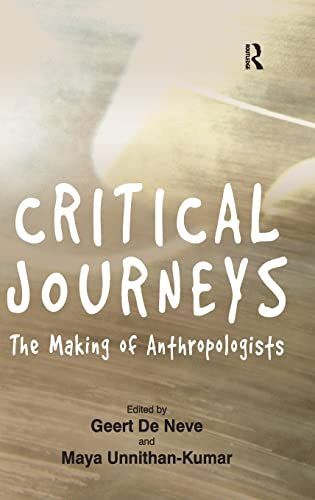
Critical Journeys The Making of Anthropologists
Through an 'ethnography of ethnographers', this volume explores the varied ways in which anthropologists become and remain attracted to the discipline. The contributors reflect on the initial preconceptions, assumptions and expectations of themselves as young anthropologists, and on the ways in which early decisions are made about fieldwork and about the selection of field locations. They question how fieldworkers come to understand what anthropology is, both as a profession and as a personal experience, through their commitments in the field, in academic departments and in contexts where their 'specialist knowledge' is called upon and applied. They discuss the nature of reflexivity that emerges out of anthropological practices, and the ways in which this reflexivity affects ethnographic practices. Providing reflections on fieldwork in such diverse places as Alaska, Melanesia, New York and India, the volume critically reflects on the field as a culturally constructed site, with blurred boundaries that allow the personal and the professional to permeate each other. It addresses the 'politics of location' that shape the anthropologists' involvement in 'the field', in teaching rooms, in development projects and in activist engagements. The journeys described extend beyond 'the field' and into inter-disciplinary projects, commissions, colleges and personal spheres. These original and critical contributions provide fascinating insights into the relationship between anthropologists and the nature of the discipline.